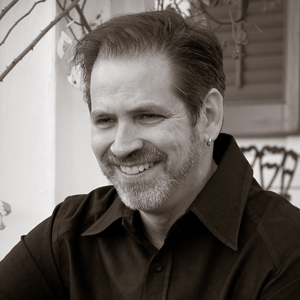Probably the biggest issue composers face, especially when getting started is the problem of finishing pieces. Somewhere in the process, we get “stalled” and in many cases, we never get started again, leaving unfinished works. In this article, we will look at some of the ways we get stuck.
Good Intentions
Writing music is a deeply personal process, and a journey of self-discovery. For me, several things are very important:
- Writing music I am proud of; work with quality, depth, and well developed ideas.
- Being original and fresh. This means creating music that is exploratory and engaging, perhaps taking the listener to new places.
- Creating music that is accessible to listeners at a variety of levels; this means that there is enjoyment and interest for both untrained and educated listeners.
- This is the big one: Consistent and predictable output. If it takes 5 years to write one song, all the lofty goals above are kind of pointless.
The Real Thing
When we set out to start writing, our dreamy, hypothetical work seems perfect… this is going to be easy! Then when we actually get into it, we face the reality that we aren’t the genius we secretly thought, and this isn’t as simple as we expected. Don’t feel bad; you’re in good company (pretty much everybody) Here are some reasons our process gets stalled:
- It’s not brilliant. If you think filtering out all but the “best” ideas is the path to writing perfect music, you may find yourself with very limited productivity. The truth is, most of what you write is going to be made out of the same old elements everybody is using. Even the most original music is like this. It is really more important to keep moving than it is to be perfect; you can always go back and edit, and the overall context is more important than each building block. Took me a long time to get this.
- It’s not original enough. Your music sounds too much like (name here) and you don’t want to plagiarize. Fear not. We are very good at drawing comparisons and finding similarities between things. Unless they are identical, let the piece continue to unfold and see what happens; usually it will go in a unique direction.
- Conditions aren’t right. Until you get that new guitar, sample library or studio space, you can’t get started. When I start to work, I often get the impulse to sharpen all my pencils, and at some point it seems logical to go to the office supply store to get stuff. This is a delay tactic, used because composing is sometimes hard.
- I don’t have time. One thing is for sure, if it is important enough, you will have time for it. As an example: like many, I used to think I could only work late at night, when I was “creative.” But when I needed to start getting up early, this wasn’t practical anymore. The two choices: don’t compose, or challenge this preconception. Fact is, we can work whenever we want to. If a precondition keeps us from working, it needs to go.
- Not ready. This one was strong for me; I always felt like I could learn more, and that some future, more prepared version of me would do better work. This can lead to endless study. While craft and knowledge are important, when they are used to avoid getting started, they are excuses.
- It should be easier. We have all seen Amadeus, where Mozart is dictating the music from his bed; seems effortless, right? First, its a movie. Second, even if it is true, that has no bearing on us; we have our own journey, and it may be we will have to work hard to create our work. So be it. Many great writers will tell you that it isn’t easy for them. The result is what counts.
- I don’t have any ideas. Nonsense. One thing we all have is ideas… constantly. What is really happening is an extreme case of “filtering” where we dismiss our ideas before they even get considered. Usually this one appears when we are looking for a new part to go with what we already have. Sometimes I ask my students “what would you like this section to be like?” and they tell me all kinds of characteristics. They actually do have ideas.
- Other people’s opinions. Sometimes we play our unfinished work for people, usually because we want encouragement. This is a tricky thing, because we may get something we didn’t want: criticism. Next thing you know, you are scrapping the whole thing and starting over. Be very careful of your need for reassurance, because it can throw a wrench in the works. I usually try to get my work finished before I start asking for opinions.
- Closed-minded. We are part of a large creative community. All of us are constantly being influenced, and without new input, we will all stagnate. Rather than excluding all influence, I try to study the music of others. Our originality is automatic and natural. Learning from others will not change this. When I feel stuck, the first thing I do is listen to some new music.
- I’m not inspired. For me, the feeling of “inspiration” is a rather fragile state. When I feel really inspired, I get restless, and I have to get up and walk around. This is an emotional high rather than a creative peak. Most of the ideas I am most proud of came during a calm, routine, everyday writing session. This is probably the most overused excuse, and people go to great lengths (and depths) to try to get “inspired.” This plays into the imaginary “movie scene” about creativity. (usually with a collage of images and a song in the background) My belief: Craft, work ethic, and commitment are the real keys to creativity.
There are clearly more than 10 real reasons we don’t finish our work, but hopefully this gives us a cross-section of the blocks we encounter.
What are some “mind games” you play that keep you from being productive?
Do you have a lot of unfinished work?
How do you get yourself moving?



Pingback: 8 Ways We Avoid Making A Recording | Randy Hoexter()